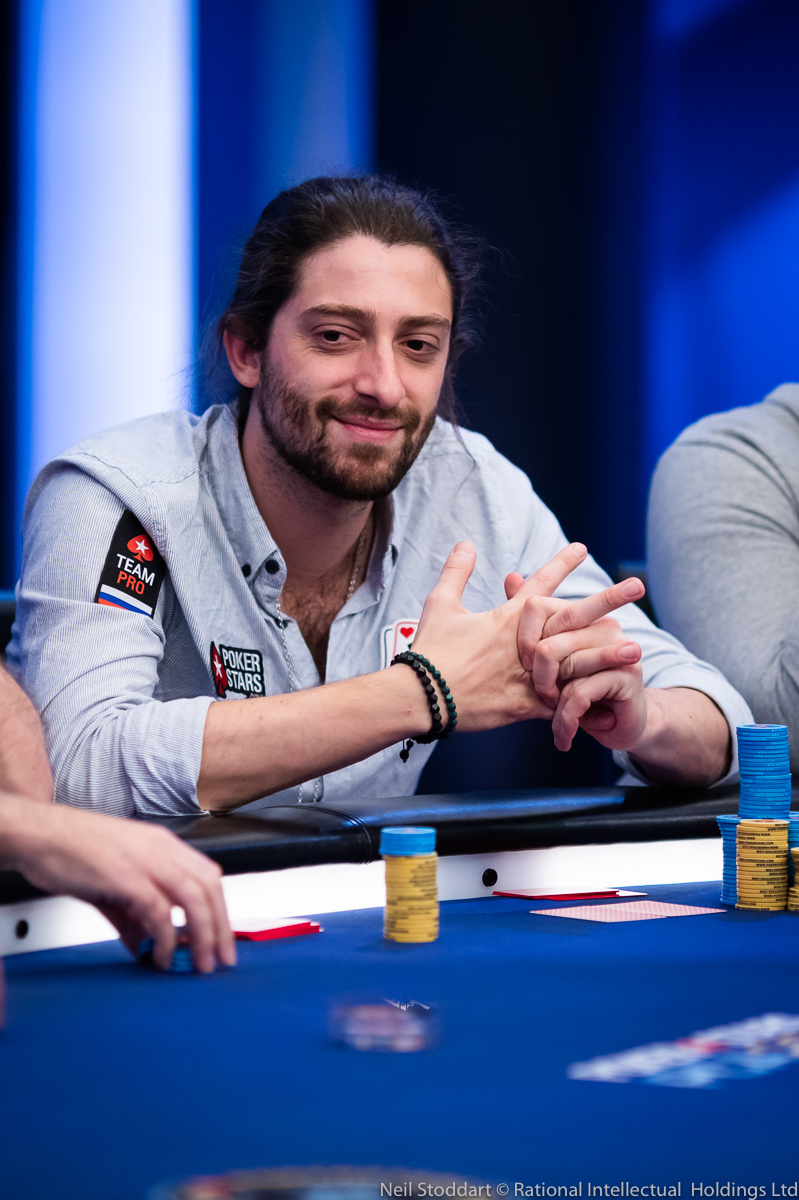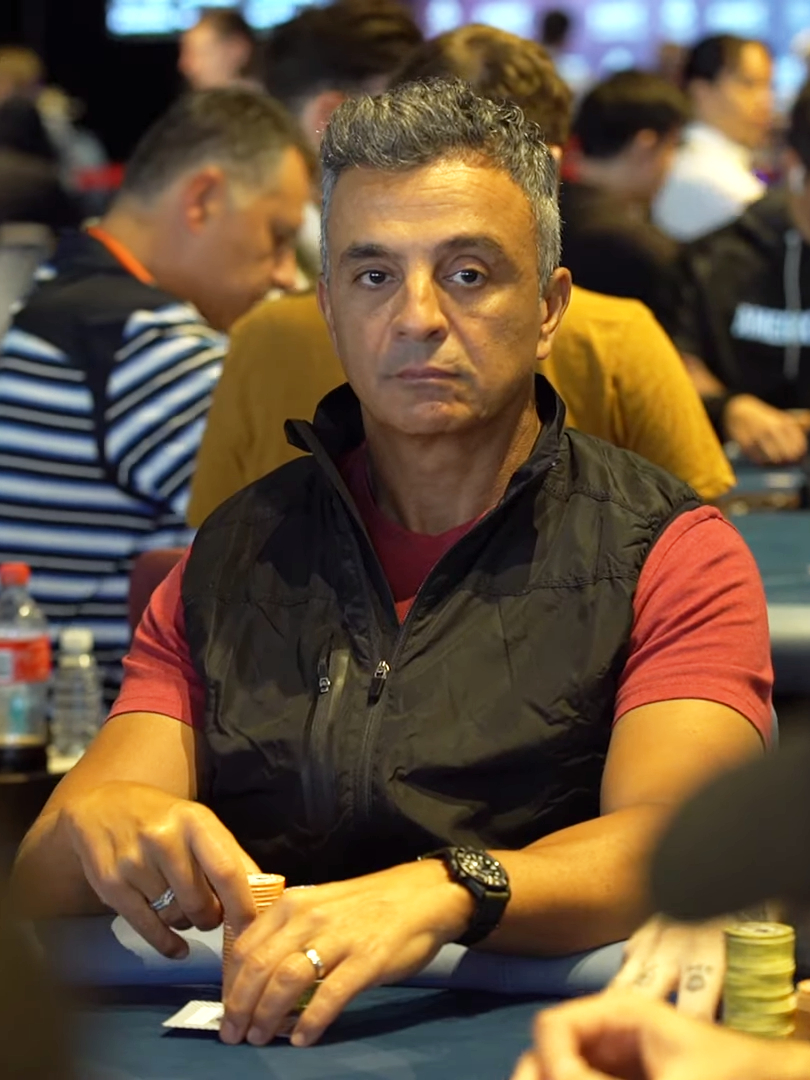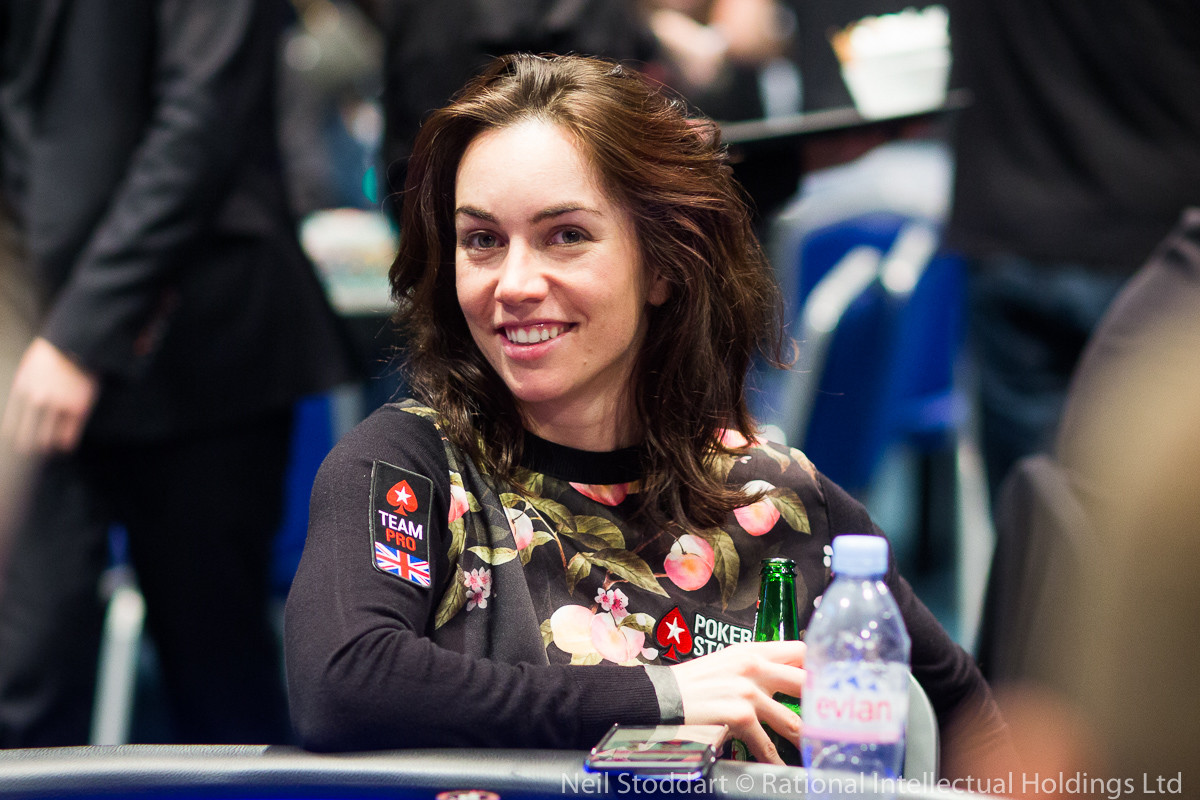Ted Talk Poker
Sean Carroll took a two hour break from his vacation to chat on TED Conversations about his talk on the nature of time and other questions about time, the cosmos, and poker. Thanks to everyone who came by with questions, and to Sean for exciting answers about an enormous topic. SUBSCRIBE for more speakers Oxford Union on Facebook: Oxford Union on Twitter: @OxfordUnio.
Poker pro Liv Boeree back in mid-February gave a speech at the TEDxManchester conference, and in it she discussed the ways in which people can use probabilities to improve our “everyday decision making.”
American Idol’s William Hung Talks Poker January 10, 2020. William Hung, who rose to fame in 2004 after his “She Bangs” audition on American Idol, is headed to Vegas this month to. In this quick talk, professional poker player Liv Boeree shares three strategies she's learned from the game and how we can apply them to real life. This talk was presented at an official TED conference, and was featured by our editors on the home page. TED Talk Subtitles and Transcript: Is it better to be lucky or good? Should we trust our gut feelings or rely on probabilities and careful analysis when making important decisions? In this quick talk, professional poker player Liv Boeree shares three strategies she's learned from the game and how we can apply them to real life.
On Tuesday, the video of Boeree’s talk was uploaded to YouTube. Boeree is currently fifth on the women’s all-time poker money list with more than $3.5 million in lifetime tournament scores. She’s widely considered one of the best in the game.
“We can’t be certain which path the future will take, but we can control the likelihoods of the paths we want,” she said during the talk. That sounds like a poker tournament.
Check out the 14-minute talk below.
So I'm a professional poker player, and today, I want to talk aboutthree things that the game has taught me around decision-makingthat I find apply to everyday life.
Now the first of these thingsis about luck. Now, like poker, life is alsoa game of skill and luck, and when it comesto the biggest things we care about — health, wealth and relationships — these outcomes don't only dependon the quality of our decision-making, but also the roll of life's dice. For example, we can beperfectly health-conscious and still get unluckywith something like cancer. Or we can smoke 20 a dayand live to a ripe old age, and this kind of ambiguitycan make it hard for us to know how good our strategies are, sometimes, especially when we'reexperiencing a lot of success.
For example, back in 2010, I won a really big poker tournamentknown as the European Poker Tour. And because I'd only been playingfull-time for about a year, when I won, I assumedI must be rather brilliant. In fact, I thought I was so brilliant that I not only got rather lazywith studying the game, but I also got more risky, started playing inthe biggest tournaments I could against the very best in the world. And then my profit graph wentfrom a thing of beauty to something kind of sad, with this worryingdownhill trend for a long time, until I finally realizedthat I was overestimating my skill level, and got my act together.
And this kind of reminds meof what we've been seeing in the cryptocurrency space,at least in 2017, where the only thing that's been going upfaster than the markets themselves is the number of 'seniorinvestment specialists' who have been appearing out of nowhere. Now I'm not saying it's not possibleto have a strategic edge, but at the same time,it's very easy to feel like a genius when you're in a marketthat's going up so fast that even the worst strategiesare making a profit. So when we're experiencing success, it's important to take a momentto really ask ourselves how much of it is truly down to us, because our egos love to downplaythe luck factor when we're winning.
Now, a second thing poker taught me is the importanceof quantifying my thinking. When you're playing,you can't just get away with going, 'Eh, they're probably bluffing.' That's just going to lose youa bunch of money, because poker is a gameof probabilities and precision, and so you have to train yourselfto think in numbers. So now, whenever I catch myself thinking vaguely about somethingreally important, like, 'It's unlikely I'll forgetwhat I want to say in my TED Talk,' I now try to estimate it numerically.
(Laughter)
Ted Talks Poker Lynn Brie
Trust me, it helps a lotwith the planning process. And the thing is, almost anythingthat could possibly happen here today, or at any point in the future, can also be expressedas a probability, too.
(Laughter)

So now I also try to speakin numbers as well. So if someone asks me, 'Hey, Liv, do you think you're goingto come along to that thing tonight?' instead of just saying to them,'Yeah, probably,' I actually give them my best estimate — say, 60 percent. Because — I know that soundsa little odd — but the thing is, I ran a poll on Twitter of what people understandthe word 'probably' to mean, and this was the spread of answers. Enormous! So apparently, it's absolutely useless at actually conveyingany real information.

So if you guys catch yourselvesusing these vague words, like 'probably' or 'sometimes,' try, instead, using numbers,because when we speak in numbers, we know what landsin the other person's brain.
Now, the third thing I wantto touch on today is intuition. How often have you seenthese kinds of inspirational memes in your Facebook feed?
[Always trust your gut feelingand never second-guess.]
They're nice, right? It's lovely. Yes. 'Trust your soul.' Well, they're terrible advice. These are some of the bestpoker players in the world right now. Do they look like people who livepurely off feelings and intuitions?

(Laughter)
Ted Talk Play Therapy
Look at them! Obviously, these guysare about slow, careful analysis, and that's because the gamehas outgrown the days where pure street smartsand people-reading can get you to the top. And that's because our intuitionsaren't nearly as perfect as we'd like to believe. I mean, it'd be great,whenever we're in a tough spot, to just have an answer appear to usfrom some magical source of inspiration. But in reality, our gutis extremely vulnerable to all kinds of wishfulthinking and biases.
So then, what is our gut good for? Well, all the studies I've read conclude that it's best-suitedfor everyday things that we have lotsand lots of experience in, like how we just knowthat our friend is mad at us before we've even said anything to them, or whether we can fit our carinto a tight parking spot. But when it comes to the really big stuff, like what's our career path going to be or who should we marry, why should we assume that our intuitions are better calibrated for thesethan slow, proper analysis? I mean, they don't haveany data to be based off.
So my third lesson is,while we shouldn't ignore our intuitions, we shouldn't overprivilege them either. And I'd like to summarizethese three lessons today with my own set of memes, with more of a poker-player twist.
'Success is sweetest when you achieve itacross a large sample size.'

(Laughter)
'Your gut is your friendand so is a cost-benefit analysis.
(Laughter)
'The future is unknown, but you candamn well try and estimate it.'
Thank you.
(Applause)